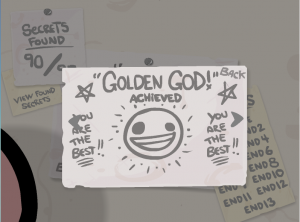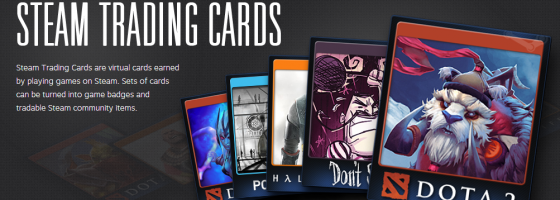The last decade was arguably one of the biggest in terms of progress for the Game industry: The rise of digital distribution, Sega bowing out of the console market, Microsoft stepping in and much more.
Achievements were another major development that since has become universally adopted by AAA development. But speaking with some designers about achievements, has this mechanic overstayed its welcome?
Gold Star Design:
The act of having an extrinsic reward for playing video games has been around since the arcade era: From earning extra lives that saved money to the high score list.
But in the last decade, achievements came onto the scene thanks to the Xbox and had two major differences. First, was that they were connected in a meta-way thanks to profiles. Unlike in the arcade era where high score lists were only linked to one machine, achievements became associated with your account.
Secondly, was that achievements provided a way to incentivize a variety of play styles and provide increased replayability. Achievements varied in difficulty from using a specific weapon, to getting through a level without getting hit and so on.
At the beginning, achievements lived up to their names as designers provided the player with trials to unlock the elusive marks on their profile. Valve with Team Fortress 2 took things a step further and tied them originally to their item unlock system: requiring players to earn a set # of achievements for a specific class to unlock items.
But as time went on, these rewards that were meant for the hardcore became more streamlined and casual. Today, many games give out achievements for simply getting through a tutorial or beating a level.
Bioshock Infinite, for all the talk about it being the next step in game design, fell back on some of the most generic achievements possible: such as kill 30 enemies with a specific gun.
Now calling out just Bioshock Infinite is not fair, as this has become a common trend in AAA games. What has happened was that “the monster has turned on its creator” in a manner of speaking.
It has gotten to the point that a lot of gamers have become obsessed with achievements in their games. This has reached the point that some of them criticize any game that is released without them.
The major publishers have heard these pleas and have made it a requirement for their games to have achievements, no matter if the game supports them or not. Encase you are not aware, Microsoft had a mandate that required all XBLA titles to have achievements on them, or they would not be allowed on the service.
If you were wondering why games like Braid or Limbo had achievements, there you go.

Besides regular achievements, Borderlands 2 has in-game achievements that can be traded in for character spanning bonuses.
Achievements have taken off in social games as another controlling tool to keep people playing.
These titles usually have an achievement page where the first set could be unlocked through regular play, but the rest would require the player to spend actual money.
What was once supposed to be a reward for the best players has turned into participation trophies and some designers aren’t happy about this.
Where’s the Reward?:
Over the last two weeks, we had two designers on our podcast: Kevin Forbes from Klei Entertainment and Zach Barth from Zachtronics Industries. During both casts, we got on the subject of achievements and we were all in agreement about the state of achievement usage.
Achievements should not be a required element of game design as not every game supports them. I found it incredibility silly that The Walking Dead from Telltale Games had achievements for playing through each chapter on Steam (and I assume on PSN and XBLA.)
Kevin on our chat commented that shouldn’t playing the game be the reward? During the development of Don’t Starve, he got a fair share of comments from forum visitors on the very topic.
With a title like Don’t Starve, creating meaningful achievements would be difficult, due to the design of the game. There is an issue with achievement design that designers are facing today.
It is that most of the time they get in the way of the design. This means that most designers just create throwaway achievements and leave it at that, but this conflicts with story based or serious games.
If a designer does try to put some thought into their achievements then they run the risk of upsetting their fans with poorly designed achievements. During the original release of Team Fortress 2‘s items and achievements, Valve made some crazy requirements to unlock achievements. Several of which actually went against playing the specific class: such as focusing on getting kills as the medic.
It was the complaints against the achievement system that made Valve transition away from it and changed to a random drop system as an alternative for unlocking items.
This matter leaves developers in an unusual situation: Do they create meaningless achievements that clash with the game, or try to create better integrated ones and risk making them too demanding and get complaints from?
When we talked about achievements a simple question came up: What is the point of achievements? On the consoles, trophies on the PS3 or gamerscore on the 360 serve no purpose. So why are they considered a requirement in every retail game?
“I’m fine with challenging games having regular achievements.
The designers didn’t get too creative with Dark Souls, but then again accomplishing anything in Dark Souls was in of itself an achievement.”
A basic answer is that they are another way to convince people to buy games and go after them. Even though they have no value, the players are giving them a value, regardless of their actual worth beyond just playing the game.
As with our guests, I don’t believe that every game should include achievements and the ones that I do like are those that have value. Now when we use the term “value” that can mean several things, one of which Steam has recently introduced.
Achieving Achievements:
Personally I don’t go achievement crazy in most games, due to the as mentioned fact that they don’t mean anything. Now if it was something that I was planning on doing or something challenging within the realm of possibility, then I’ll try it.
To me, the best kind of achievements is those that add value to the game, and the best example of that would be The Binding of Isaac.
In a post on his site, Isaac designer: Edmund Mcmillen said that he didn’t want to add achievements into Isaac on the reason of “just because.” Instead he tied the progression of the game directly to the achievements. Every achievement in Isaac unlocked something new that influenced the gameplay.
They could be anything from making the game harder, to new bosses, items, enemies and more. The point was that the achievements directly influenced the game and made you want to go after them even more.
Another way of giving achievements value is making them extrinsic to the game itself. This is the point Ken was talking about on the last few casts: That achievements could be used to unlock content outside of the game, either related to the game or not.

The achievements in The Binding of Isaac were challenging, but also provided the player with a variety of rewards.
Incidentally for all the hate aimed at Uplay, they were the first digital client to provide actual rewards for getting achievements.
Each game that required Uplay allowed the player to earn tokens for completing specific achievements within the game.
Usually two of them were for getting through the tutorial and beating the game. The other ones were skewed towards mastering the game.
The tokens could be used to unlock anything from new game content, soundtracks, and wallpapers and so on. The tokens themselves were not locked to a single game: I could use my tokens I earned from Anno 2070, to unlock content from The Settlers 7 for example.
Of course we cannot ignore the recent release from Valve: Steam trading cards and Meta game profiles. For the people who got in the beta (like me), playing specific games now gives you the chance to earn trading cards. Completing a set can give the player a badge that levels up their actual steam account, which Valve has said will eventually give them special discounts and rewards.
Now this is actually Valve’s second attempt at creating a meta-game around the store. A few years ago during one of the summer sales, you could unlock tickets by earning game specific achievements tied to the sale that could be traded in for additional content.
Personally I find this both a genius move and something that sounds insanely evil: gamifying digital accounts. Some people have already predicted that we are a few steps away from the end of the world… naturally.
But they do have a point by the fact that a system like this is so easy to be abused by the people in charge to “convince” people that they need to buy certain games. If regular achievements have trained some people that they are important, a part of me is worried about the repercussions of such a system.
Lastly, I’m fine with challenging games having regular achievements. The designers didn’t get too creative with Dark Souls, but then again accomplishing anything in Dark Souls was in of itself an achievement.
As we prepare for the next generation of console development and Steam’s upcoming plan, it will be interesting to see where achievements will go. I personally hope that we return to a time where getting an achievement was hard won and not by getting through a tutorial or watching a cut-scene.
And before I forget, here’s your reward for getting through this entire post:




Pingback: SOS: Selling Out (Bio)Shock and Other AAA Titles | Game Wisdom()